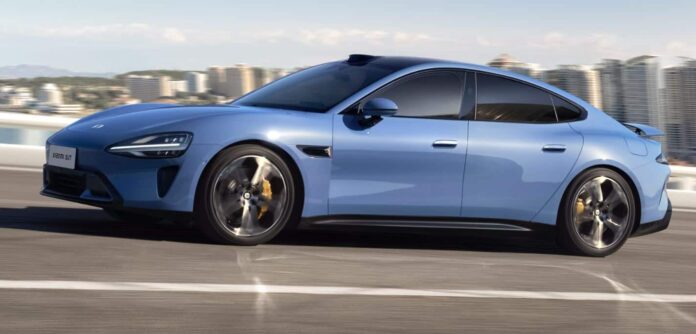In the latest declaration catalog released by the Chinese MIIT on July 12, four Xiaomi SU7 versions appeared. The car’s overall parameters have not changed compared with the versions currently on sale, but its tail logo changed from ‘Beijing Xiaomi’ to just ‘Xiaomi‘ and the company name is now “Xiaomi Automobile Technology Co., Ltd.” This likely implies that Xiaomi has obtained the license to independently manufacture cars.


For reference, on the declaration catalog released on November 15 last year, the trademark listed was “Xiaomi” while the company name was BAIC Group Off-road Vehicle Co., Ltd.

Specifically, the four Xiaomi SU7 electric sedans (see spec here) declared this time are XMA7000MBEVR2, XMA7000MBEVR3, XMA7000MBEVR5, and XMA7000MBEVA1.
Previously, only 16 new companies/brands including BAIC New Energy, Changjiang Automobile, Chery New Energy, JAC Volkswagen, and Changhe Suzuki have been approved to manufacture new energy vehicles (NEVs). Now that Xiaomi might have obtained permission from Chinese regulators to manufacture NEVs, it will be interesting to see whether Huawei and Baidu will also be able to do so. For example, in August last year, because Baidu wasn’t able to obtain the manufacturing license, it established the Jiyue joint venture with Geely to leverage Geely’s qualifications and manufacturing capabilities.

Xiaomi delivered more than 10,000 vehicles in June, according to the brand’s official Weibo account, and it expects the delivery volume in July to continue to exceed 10,000 vehicles. For comparison, Xiaomi SU7 delivered 8,630 units in May and 7,058 units in April.


The company also announced in May that it would start two production shifts in June, aiming to deliver at least 100,000 vehicles by the end of 2024, and striving for 120,000 vehicles. Starting from July 1, the company expects the delivery cycle to be shortened by up to 5 weeks after the order is locked. At the same time, the company officially announced that it had added 17 new Xiaomi Auto stores in June, spanning 30 cities across China, bringing its number of stores to 87. In July, the company also plans to add 17 new stores.


Source: Chinese MIIT, The Paper


